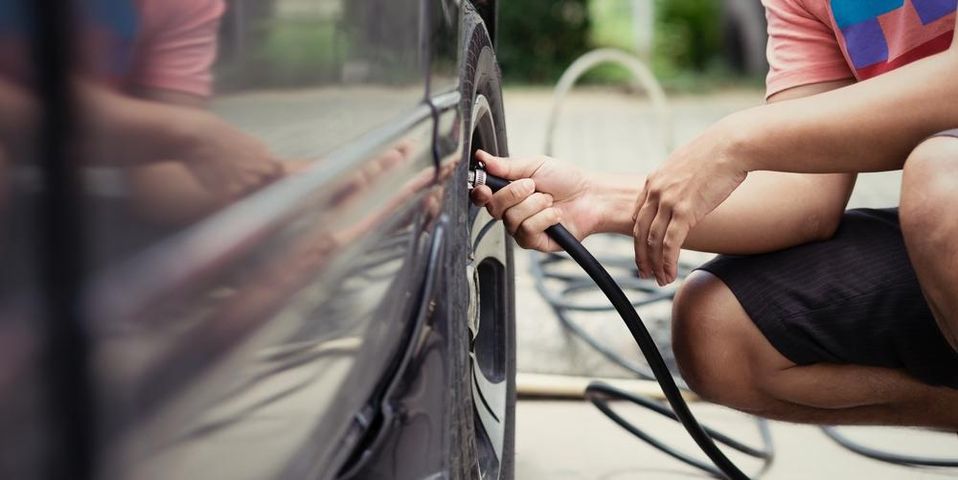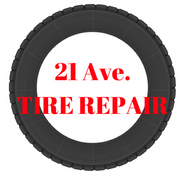
While they’re made to last several years, your tires are still vulnerable to debris—from glass to nails—scattered on the road, so it's important that you care for them properly. A major part of tire maintenance is checking the air pressure regularly to make sure they’re adequately inflated. Failure to do so can lead to a variety of problems. Below, you'll learn why the correct pressure is essential and how to determine the recommended pressure in pounds per square inch (PSI) for your vehicle.
Why is the Correct Pressure Crucial?
Tires that are overinflated can feel bouncy, make the car difficult to control, and increase the risk of an accident. You'll feel every bump and pebble on the road. Because they have a maximum air capacity, overinflation can also increase the chances of a blowout, which is extremely dangerous at highway speeds.
On the other hand, underinflated wheels can cause the car to drive sluggishly. Underinflation also wears tires out more quickly and shortens their useful lifespan. Finally, it increases drag and reduces fuel efficiency, so you'll fill up more frequently and spend more on gasoline or diesel.
How Can You Determine the Correct Tire Pressure?
 The manufacturer-recommended tire pressure is normally posted on the specifications sticker on the inside frame of the driver's door, near the latch catch. If the sticker has been removed or is illegible, you can normally find the information in your owner's manual. Most auto manufacturers post files of their manuals online if you no longer have one. Be aware that the pressure listed on the tire is simply the maximum it can withstand; it is not the recommended pressure for your vehicle.
The manufacturer-recommended tire pressure is normally posted on the specifications sticker on the inside frame of the driver's door, near the latch catch. If the sticker has been removed or is illegible, you can normally find the information in your owner's manual. Most auto manufacturers post files of their manuals online if you no longer have one. Be aware that the pressure listed on the tire is simply the maximum it can withstand; it is not the recommended pressure for your vehicle.
For tire repair or a set of name-brand replacements—including Bridgestone®, Firestone®, and Primewell®—contact 21 Ave Tire Repair in Paterson, NJ. They are family-owned and -operated and have a reputation for prompt service and quality products. They offer both discount tire sales and repair. Visit their website for a list of their services or call (973) 225-0923 to schedule an appointment.
About the Business
Have a question? Ask the experts!
Send your question

